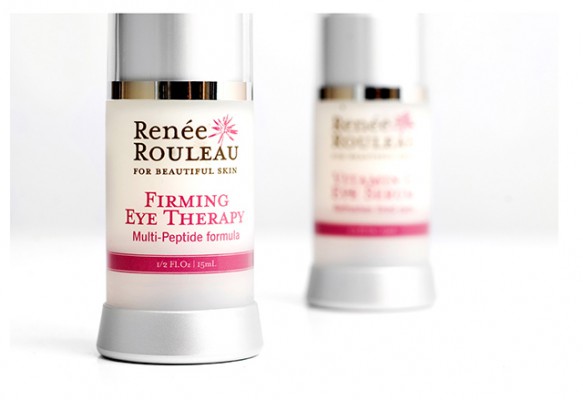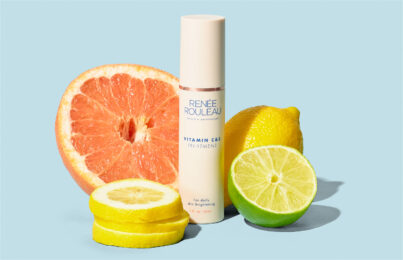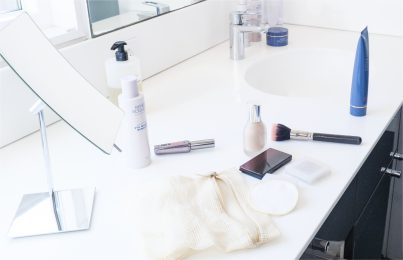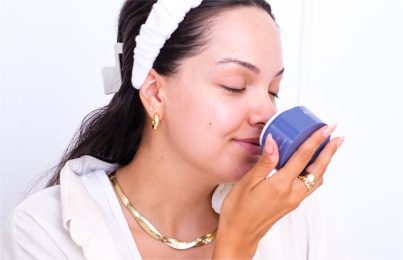Of all the beauty products one uses, people seem to have difficulty with eye cream the most. Not that it is too rich or too thick or that it doesn’t do the trick—these are the least of the worries. The biggest complaint I hear is that it makes the eyes sting or tear/water. But is the cream really to blame?
When an eye product is used and irritation occurs, it is often assumed that the product is the problem. This is the first conclusion drawn, when there are three other causes that are probably more likely:
-Synthetic Fragrance: This is the number one cause for skin reactions. Synthetic fragrance is often an irritant and signs can range from mild itching and swelling to a red rash. The eyes are a delicate area to begin with, and if your eye cream has this unnecessary ingredient, it can react poorly. (None of the Renée Rouleau skin care products contain synthetic fragrance.)…
-Overuse: A small drop is all that is needed in the eye area. If you overdo it the product will actually end up in your eyes, picked up by your eyelashes! Every time you blink the hairs will lift microscopic amounts of product and it will eventually deposit into your eyes. Anything that enters the delicate eyes will be an obvious irritant.
-Applying Too Close: Did you realize eye creams migrate on warm skin? The cream you’ve rubbed all over your eyelids will move into your eyes all the faster because it has nowhere else to go. When you yawn it will push it up by the tears; when you rub your eyes it will press it in by your fingers. Make sure you leave a clear area around the eyes when applying cream and only apply to the bone area.
So before you assume it’s the eye cream, be sure to follow this expert advice!
Sign up here to receive our monthly skin tip e-newsletter delivered directly into your email box!
Celebrity Esthetician & Skincare Expert
As an esthetician trained in cosmetic chemistry, Renée Rouleau has spent 35 years researching skin, educating her audience, and building an award-winning line of products. Her hands-on experience as an esthetician and trusted skin care expert has created a real-world solution — products that are formulated for nine different types of skin so your face will get exactly what it needs to look and feel its best. Trusted by celebrities, editors, bloggers, and skincare obsessives around the globe, her vast real-world knowledge and constant research are why Marie Claire calls her “the most passionate skin practitioner we know.”



